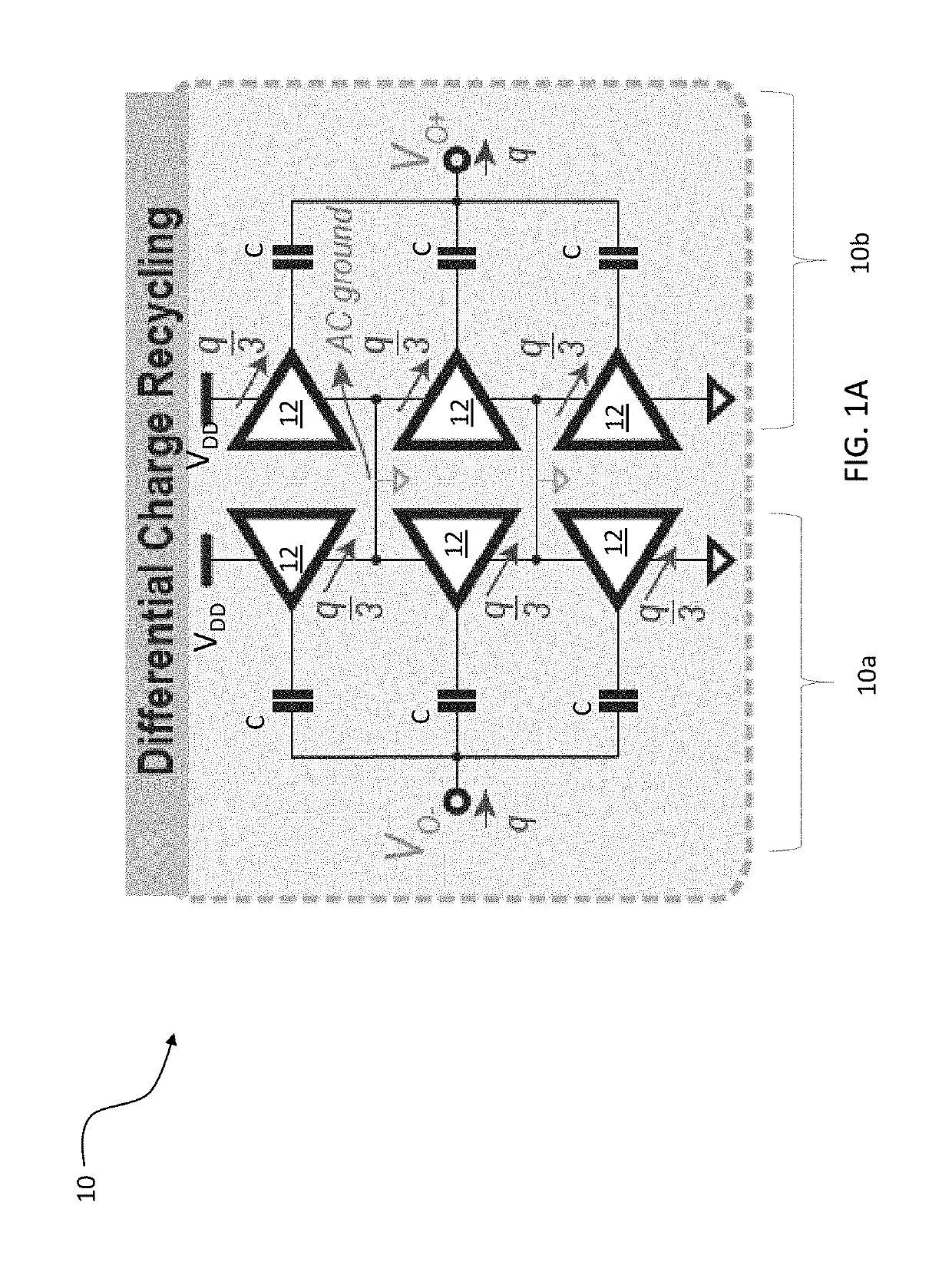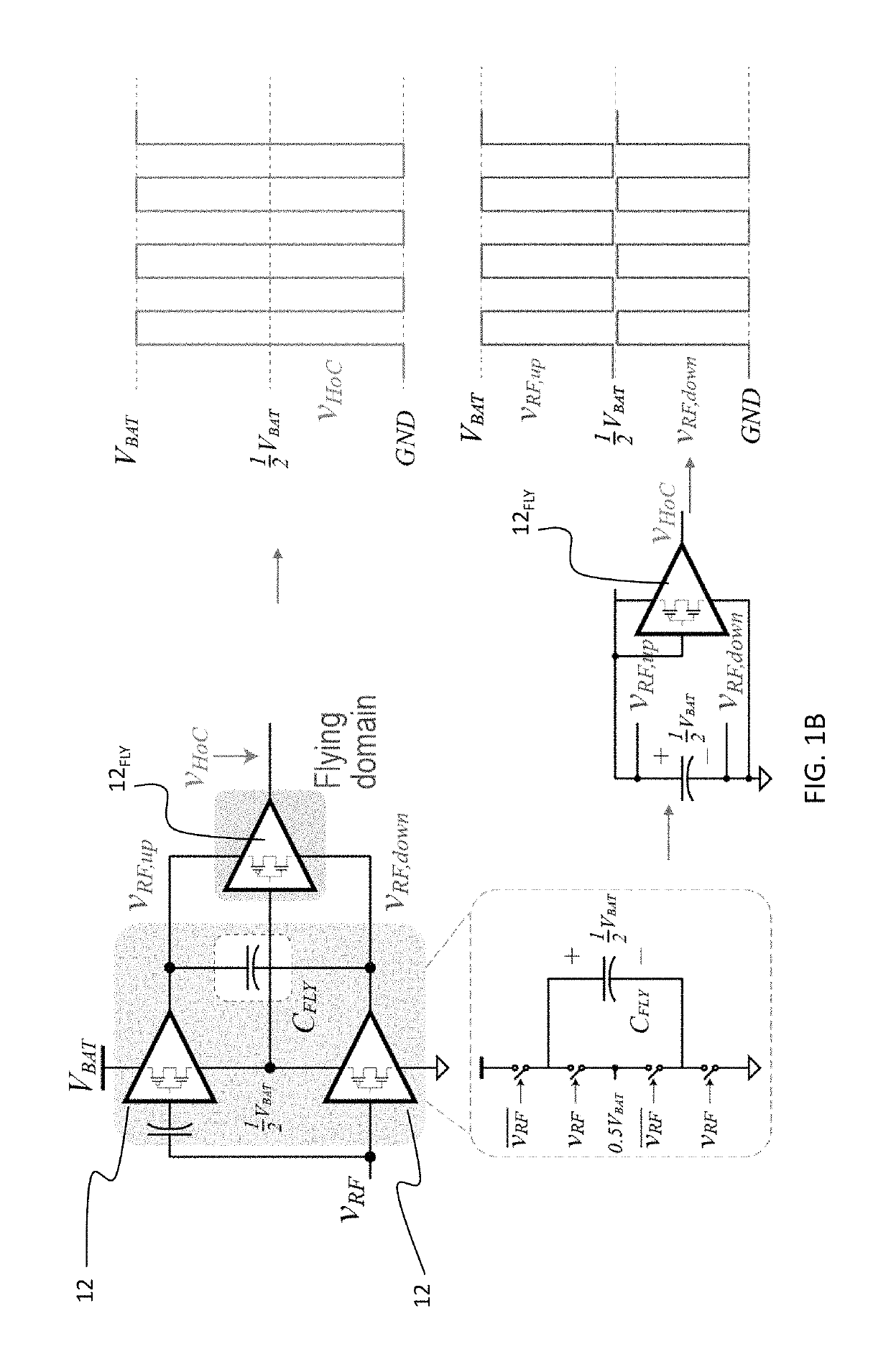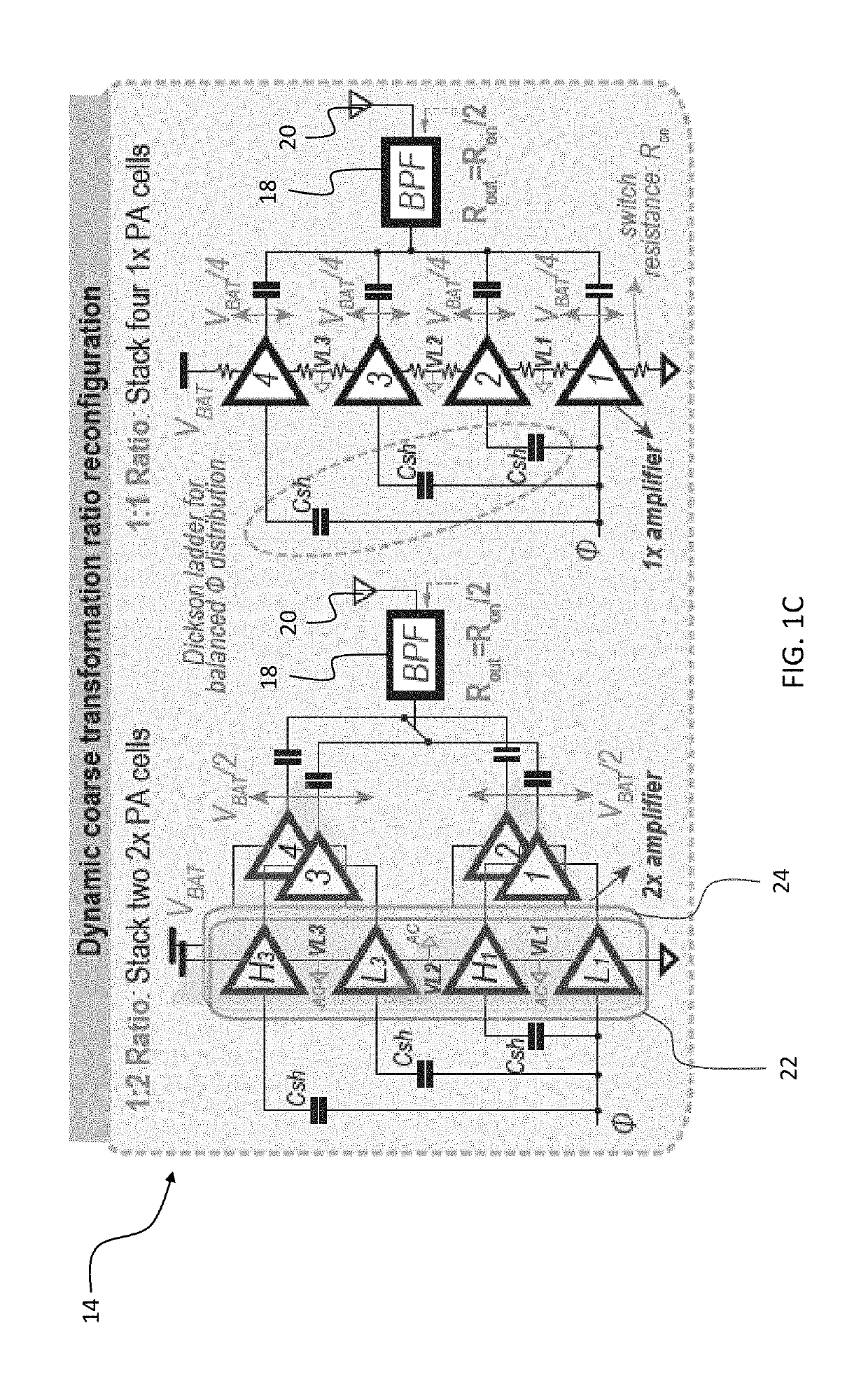Switched capacitor house of cards power amplifier
a power amplifier and capacitor technology, applied in gated amplifiers, process and machine control, instruments, etc., can solve the problems of reducing the breakdown capability of devices, occupying significant real estate for transceivers, and tax battery li
- Summary
- Abstract
- Description
- Claims
- Application Information
AI Technical Summary
Benefits of technology
Problems solved by technology
Method used
Image
Examples
Embodiment Construction
[0027]Preferred embodiments of the invention provide high-voltage RF power generation via a DC-RF power amplifier inverter topology that achieves implicit DC-DC conversion, solid-state impedance transformation, and high-efficiency at back-off, all in a single circuit. Preferred topologies can use, but don't require, thin oxide transistors. However, preferred topologies are independent of the type and size of transistors utilized.
[0028]In preferred circuits, high efficiency across a wide output range is primarily achieved by 3 techniques: 1) a ˜100% efficiency implicit DC-DC conversion approach that vertically stacks PA cells (i.e., by connecting the positive supply terminal of the bottom PA cell to the negative supply terminal of the stacked PA cell) in a ladder topology; 2) flying the individual PA cells, in relation to the battery rails, in a 2-phase recursive house-of-cards (RHoC) switched-capacitor network (i.e., where a stack of N PA cells connect to a stack of N−1 PA cells in ...
PUM
 Login to View More
Login to View More Abstract
Description
Claims
Application Information
 Login to View More
Login to View More - R&D
- Intellectual Property
- Life Sciences
- Materials
- Tech Scout
- Unparalleled Data Quality
- Higher Quality Content
- 60% Fewer Hallucinations
Browse by: Latest US Patents, China's latest patents, Technical Efficacy Thesaurus, Application Domain, Technology Topic, Popular Technical Reports.
© 2025 PatSnap. All rights reserved.Legal|Privacy policy|Modern Slavery Act Transparency Statement|Sitemap|About US| Contact US: help@patsnap.com



